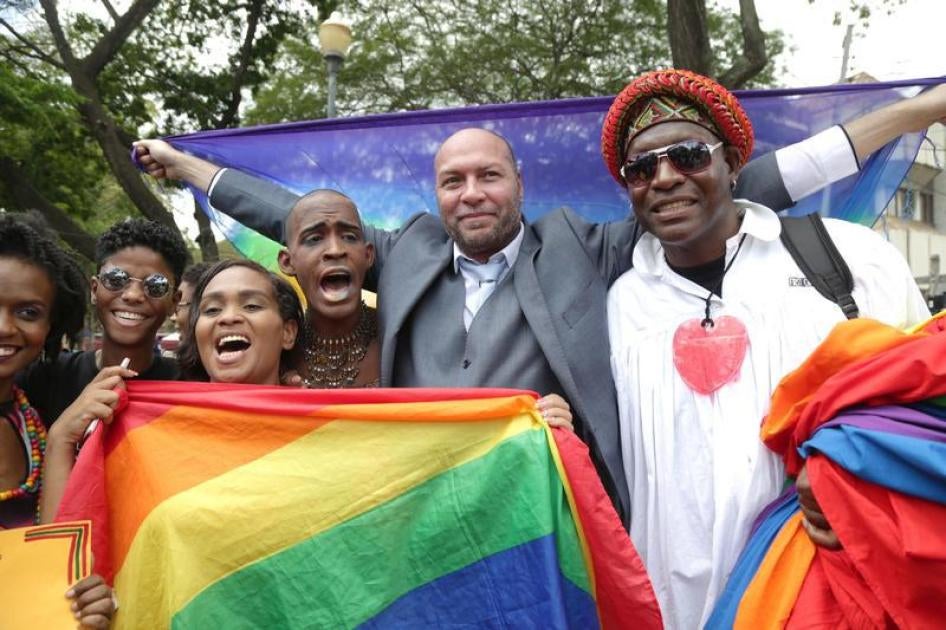(Washington, DC, April 13, 2018) – The High Court of Justice in Trinidad and Tobago ruled on April 12, 2018, that the country’s laws criminalizing same-sex intimacy between consenting adults are unconstitutional, Human Rights Watch said today. It is a resounding win for lesbian, gay, bisexual and transgender (LGBT) activists in the country and in particular for Jason Jones, the claimant in the case.
Section 13 of Trinidad and Tobago’s Sexual Offenses Act punishes “buggery,” or anal intercourse, punishable by sentences of up to 25 years in prison. Section 16 of the same act, on “serious indecency,” stipulates that a person who is sexually intimate with a person of the same sex without having intercourse is liable to imprisonment for up to five years.
“The High Court in Trinidad and Tobago, with this ruling, made a powerful statement that the legal sanctions on same-sex intimacy impinge on basic rights, ranging from privacy and family life to freedom of thought and expression,” said Boris Dittrich, LGBT rights advocacy director at Human Rights Watch. “This is a major step forward in a region where the rights of LGBT people are restricted.”
Jones, who challenged the law, is an openly gay citizen of Trinidad and Tobago who left the country because of severe discrimination on the basis of his sexual orientation. He visits the country from time to time and contended in his lawsuit that the buggery laws forced him to forego consensual sexual relations with a male partner or risk imprisonment.
The ruling affirms that the case was about the dignity of the person and not about the will of the majority or any religious debate.
“The court’s reasoning that people must be able to make decisions about whom they love and with whom they wish to form a family, without having to live under the constant threat that any moment they may be prosecuted, is very strong,” Dittrich said.
The court also reasoned in its ruling that this threat is sanctioned by the state, and that it serves to justify the belief that LGBT people are criminals and are therefore deemed to be of a lesser value than other people.
The ruling will lend support to other human rights activists in the Caribbean to turn to the courts and seek to overturn their own countries’ criminal provisions banning consensual same-sex acts. Many former British colonies in the Caribbean retain colonial-era laws banning same-sex relations. Trinidad and Tobago’s High Court is the second court in the Caribbean to strike down these laws as unconstitutional, following a similar ruling in Belize in 2016.
Attorney General Faris Al-Rawi said on April 13th that he would appeal the High Court ruling.
“The government of Trinidad and Tobago should accept and embrace LGBT equality, not fight against it,” Dittrich said. “The court is saying that everyone in Trinidad and Tobago deserves to be treated with dignity and afforded the same basic rights, as enshrined in the Constitution – an idea the government ought to put its weight behind.”








